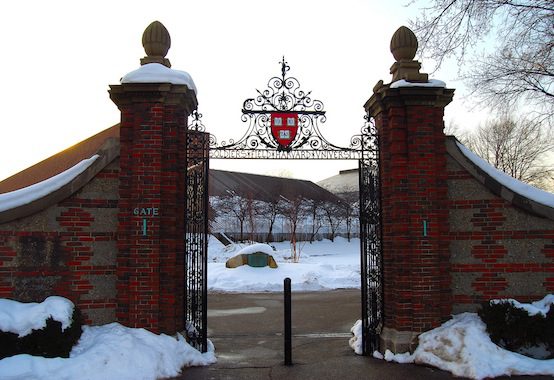The Ivy League in the Age of Obama

Each year, The Harvard Crimson conducts a survey of graduating seniors. The sample may not be perfectly representative. Nevertheless, the survey offers a fascinating windows into the lives and expectations of the next generation of the American elite. Among the highlights:
On geography:
• 42 percent came to Harvard from the Northeast. 55 percent will stay in the region after graduation.
On post-graduation plans:
• 61 percent of graduates will be employed next year. 18 percent will enter graduate school right away. The rest will pursue fellowships or travel or are among the 10 percent who have not yet determined their post-graduation plans.
• Of those who will be working, the most popular industry is consulting, drawing 16 percent of employed seniors.
• Another 15 percent will be working in finance, nearly doubling the 9 percent who entered the sector last year but still paling in comparison to 2007, when before the financial crisis, 47 percent of graduating seniors went into finance.
Asked what industry they would like to be working in ten years from now, students made very different choices.
• The consulting sector went from the very top choice to the very bottom. Just 1 percent see themselves as 32-year-old consultants.
• 5 percent said they still want to be working in finance.
• Health was by far the dominant field of choice in students’ 10-year plans, attracting 20 percent of students.
• 11 percent would like to be working in arts, sports, or entertainment, though just 5 percent will start out there.
• 9 percent envision a career in government or politics, though only 4 percent will pursue one right away.
On drinking and drugs:
• 9 percent never drink, and 7 percent drink less than once a month.
• 38 percent of students have tried marijuana, and 3 percent use it more than twice a week.
• 16 percent of the class has tried at least one of cocaine, ecstasy, mushrooms, LSD, and other illicit substances.
• 9 percent of the class has used drugs like Adderall and Ritalin.
On sex:
• 72 percent enroll at Harvard as virgins and 27 percent graduate without having sex. Of those who do have sex at Harvard, most have just one partner during their four years, but 7 percent of students have 10 or more sexual partners in college.
So much for the numbers. What does it all mean? Here are a few tentative interpretations.
- The Northeast, and particularly New York, remains a magnet for the highly credentialed. In addition to the large number of students it sends to Harvard and similar universities, it draws many young people from other parts of the country. The South, by contrast, is anathema to this cohort. Just 8% of graduating seniors plan to live South of the Mason-Dixon line, even though the area is home to many of America’s fastest growing cities.
- That’s partly because they’re attracted to lucrative industries based in Manhattan. Wall Street isn’t as popular as it once was, but 31% of graduating seniors still plan to work in finance or high-end business services.
- On the other hand, Harvard seniors don’t expect to like the jobs they have lined up. By considerable margins, they hope to make their way in health, media, or politics instead. This suggests that students’ attraction to business rests less on real interest, or even greed, than on the need to repay the debts that they have assumed to pay for their fancy degrees. They hope to work hard, save their money, and get out as soon as possible.
- Contrary to popular imaginations of student life as a four year party, these seniors are a pretty restrained bunch. Most drink and have smoked pot. But heavy drugs are distinctly unpopular, as are the study drugs that are supposed to be an epidemic among college students.
- The same goes for sex. Most Harvard students enter as a virgins and graduate having had just one sexual partner. For all the hysteria about the hookup culture, I bet that’s not too far from the norm of half a century ago. The difference is that members of the class of ’63 would have been more likely to marry their lone partner than today’s seniors.
More could be said about these numbers, which are accompanied by infographics here. On the whole, however, the Crimson surveys present a picture of thoroughly conventional, and in some ways timid group of young men and women. They’ll do fine: almost all Harvard seniors who looked for full time work seems to have found it and many expect to earn high salaries. But they seem to have set their sights relatively low, preferring the familiar to new possibilities.
It would be a mistake to call these students “conservative”. But the first generation of Ivy Leaguers to come of age under Obama is more likely to be characterized by discipline and sobriety than the hope and change they were promised six years ago.
Comments